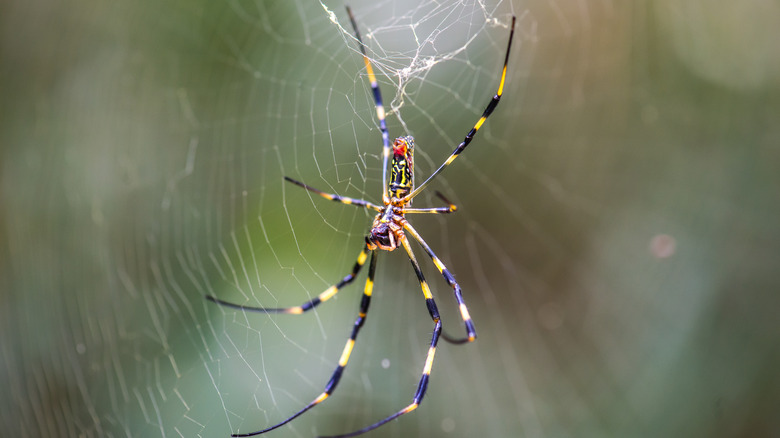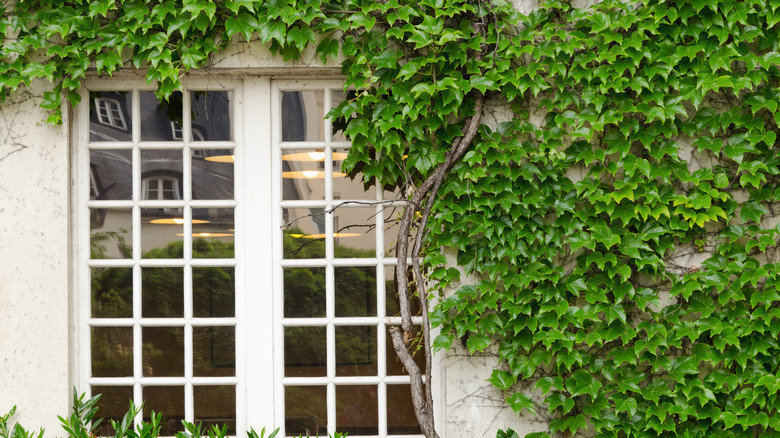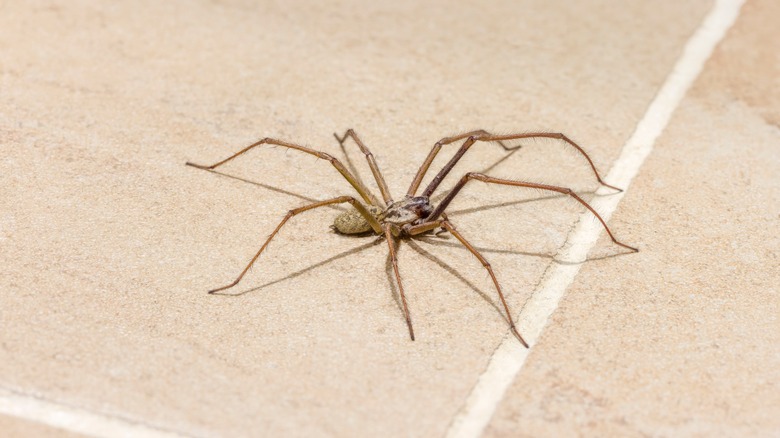Although most yard spiders are harmless or even helpful, that doesn’t mean you should welcome them into your home. Some species found in the U.S. pose a serious threat to humans, such as the brown recluse spider and the infamous black widow spider. Unfortunately, planting plants about a foot away from your home’s foundation can encourage these eight-legged pests to come closer to your home and possibly wander inside. One of the worst plants for attracting spiders is ivy (Hedera helix).
Advertising
As if there weren’t enough issues to be aware of before growing ivy, such as its invasiveness across much of North America and its toxicity, it’s also a spider magnet. Thanks to its dense foliage full of shady hiding places, ivy is a popular plant for spiders looking for a quiet place to build webs and hunt. Removing this ivy from your yard, especially near your home, will not only protect native species from the invasive plant, but it will also keep your home spider-free.
Remove ivy
Ivy is hardy in zones 4 to 13, and thanks to its rapid growth and ability to thrive in varying light and soil conditions, it’s notoriously difficult to remove once it’s established. That’s not good news if you want to get rid of this spider-attracting plant. If you have ivy growing in your yard, you should start removing it immediately. If it’s just a small amount of ivy, you can try pulling it out manually—but be sure to wear gloves and long-sleeved clothing when doing this, as ivy can cause contact dermatitis (and can also be full of spiders). When pulling out ivy, be sure to remove the roots to prevent the plant from re-sprouting, and avoid composting ivy, as it can easily regrow from small sections.
Advertising
In severe cases, you may need to resort to herbicides to get rid of ivy. A good method is to cut the ivy back as far as possible and then coat the stump with an herbicide containing triclopyrester, making sure to follow the product’s instructions. You may need to repeat this process before the plant finally dies, but once the majority of the leaves and vines are gone, the ivy should no longer be an attractive habitat for spiders. If invasive ivy is growing on your trees, you must be extra careful when removing it to avoid further damage to the trees.
Other ways to keep spiders away
Besides ivy, there are many other plants that you shouldn’t grow right next to your house (mainly because they can damage your foundation). So if you really want to have gardens near your house, you should choose low-growing plants that don’t have too many dense or shady areas where spiders or insects can hide. You should also choose drought-resistant plants so you don’t have to worry about excess water near the foundation of your house.
Advertising
Keeping your home and surrounding area clean and relatively free of debris and clutter can also go a long way toward deterring spiders from visiting. In addition to removing plants like ivy around the foundation of your home, make sure there is no firewood or other hiding places for spiders near your home, and look for cracks or crevices around doors that could provide a way for spiders to enter the house. Common mistakes like bright outdoor lighting can also attract spiders to your home. Keep in mind that while most spiders are harmless, black widow and brown recluse spiders can be quite dangerous. If you think any of these species are in or around your home, it’s best to work with professionals to safely eradicate them.
Advertising








